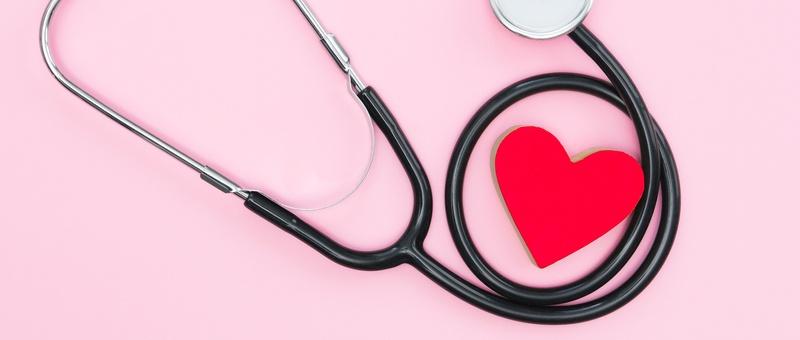
Having a heart attack when you're young
Peer reviewed by Dr Sarah Jarvis MBE, FRCGPAuthored by Dr Jennifer Kelly, MRCGPOriginally published 8 Oct 2017
Meets Patient’s editorial guidelines
- DownloadDownload
- Share
- Language
- Discussion
Heart attacks are usually thought to affect people over the age of 50. However, in reality, they can occur at any age. In fact, about 8 in every 100 heart attacks occur in those under 55, and 1 in 4 heart attacks in women affects an under-60. They are also twice as likely to be fatal in young women compared to young men, often because they are missed until too late.
In this article:
Video picks for Heart attack
A shock to the system
Hannah Wrigley was just 26 years old when she had a heart attack.
"My heart attack was completely unexpected. I was cleaning one Tuesday morning, and I started coughing rather dramatically. I suddenly collapsed to the ground with the worst imaginable burning in the centre of my chest and a crushing pain." A few hours later Hannah experienced a heavy left arm and a persistent feeling of pressure in her chest as well as feeling intensely nauseated.
When an ambulance arrived, the ECG read 'acute MI (heart attack) in progress'. Despite this, it was not until Hannah underwent an angiogram a number of hours later that doctors agreed about her diagnosis, simply due to her age and lack of risk factors. Delays in treatment, especially in young women whose MIs are not recognised, can significantly affect outcomes.
Hannah has since been found to have antiphospholipid syndrome, a tendency for her blood to clot more than usual. Before the heart attack Hannah was a strict vegan and not overweight but says she was an anxious, highly strung person. The heart attack has made her revaluate and reassess her priorities.
Taking appropriate action
The heart attack resulted in her making physical changes, including starting to eat oily fish and doing gentle yoga and Pilates. In addition, she reassessed her health behaviours and reduced a stressful lifestyle. "I had a huge mental shift and reassessed my priorities, reducing levels of stress."
She is also on medication to reduce the risk of her blood clotting again in the future and knows the signs and symptoms to look for. These signs include central crushing chest pain, or a heaviness or discomfort that may spread into the left arm, breathlessness, and nausea or grey tinge to your complexion. Importantly, women are less likely to get the 'classic' central crushing chest pain we see people collapsing with in TV soaps. Instead, symptoms in women are often more vague - another possible reason for higher death rates among women. Knowing the signs can save lives.
Cardiac health in those who are active
Back to contentsKeeping active is thought to help keep your heart healthy. It is thought that being physically active can decrease your chance of heart disease or stroke by up to 50%, a fantastic incentive for people to get active. Regular exercise can help lower blood pressure, reduce the risk of type 2 diabetes, help control weight and improve your general health and well-being as well.
People who are very physically active (more than five hours of intense exercise a week) may develop an athlete’s heart (athletic heart syndrome). This is a normal physiological change in their heart that takes place over time in response to exercise.
The heart becomes enlarged and beats more slowly, pumping more blood each time it beats. No treatment is required for people with athletic heart syndrome and it does not pose any physical threats to the athlete. However, if these signs (slow heartbeat and an enlarged heart) occur in a non-athletic person, they need to be thoroughly investigated.
Continue reading below
Sudden cardiac death in athletes
Back to contentsSudden cardiac death is a natural unexpected death from a cardiac arrest (the heart stopping), and usually it occurs during exercise. As scary as it is seeing somebody like Fabrice Muamba collapse in the middle of a Premier League football match, it is very rare.
Usually it is caused by either an inherited heart condition or cardiovascular disease (a heart attack) even if the person is physically fit.
It is important to remember that sudden cardiac death is extremely rare, but if you are concerned, please speak to your doctor. This is especially important if you have a family history of cardiac problems or unexplained collapses. Often, there are no preceding symptoms but there does appear to be a link in some athletes who experience fainting or near fainting during exercise. If this is the case or you are concerned please see your doctor for advice.
For nearly all individuals, regular exercise is very beneficial to the health of the heart, resulting in better heart health. However, as illustrated by Hannah’s story and those of athletes who suffer sudden cardiac death, heart disease can affect the young as well, so it is important to be aware of the signs and symptoms.
Patient picks for Heart attack

Heart health and blood vessels
The warning signs of a heart attack in women
According to the British Heart Foundation, 188,000 adults a year are rushed to hospital with a heart attack. But did you know that a great many of these are women? Although men are more likely to suffer a heart attack, 68,000 women per year are affected - and heart attacks remain the number one cause of death in women in the UK.
by Gillian Harvey

Heart health and blood vessels
Can stress cause heart attacks?
While stress alone doesn't directly cause heart attacks, long-term, unmanaged stress can raise your chance of having one. In this article, we explore effective ways to lower your likelihood of heart attack and offer practical tips for managing stress.
by Victoria Raw
Continue reading below
Article history
The information on this page is peer reviewed by qualified clinicians.
8 Oct 2017 | Originally published
Authored by:
Dr Jennifer Kelly, MRCGPPeer reviewed by
Dr Sarah Jarvis MBE, FRCGP

Ask, share, connect.
Browse discussions, ask questions, and share experiences across hundreds of health topics.

Feeling unwell?
Assess your symptoms online for free
Sign up to the Patient newsletter
Your weekly dose of clear, trustworthy health advice - written to help you feel informed, confident and in control.
By subscribing you accept our Privacy Policy. You can unsubscribe at any time. We never sell your data.